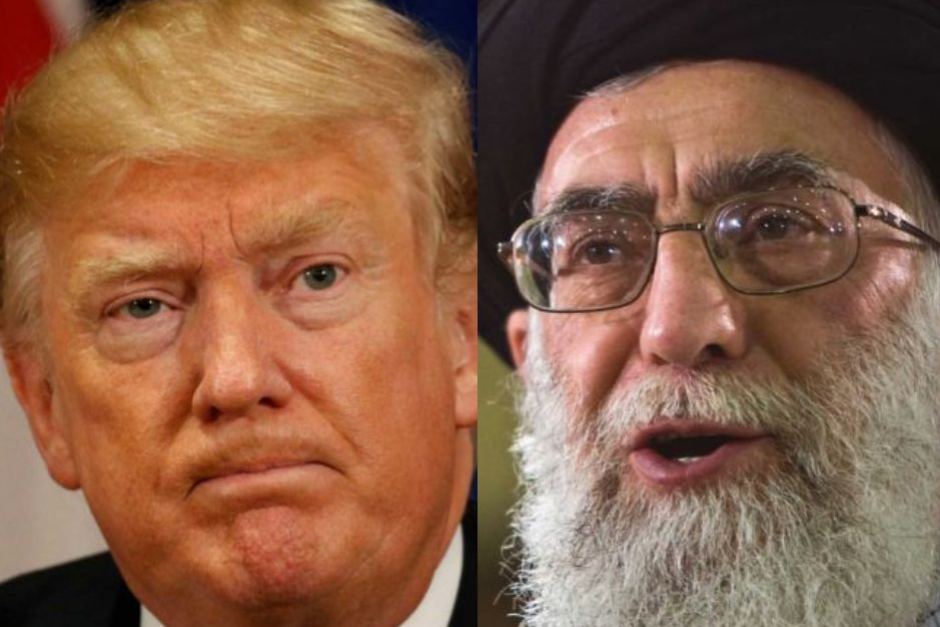Taking its aggression against Iran a step further, the United States announced a new set of sanctions against it on June 25. These new sanctions specifically target the political and military leadership of the country. As per the sanctions, Iranian supreme leader Ayatollah Khamenei and eight top commanders of the Islamic Revolutionary Guard Corp (IRGC), along with their staff, cannot access financial resources under US jurisdiction. International travel and property owned by these individuals inside territories controlled by the US will be affected by these sanctions. It is reported that similar sanctions will be announced against Iranian foreign minister Javad Zarif by the end of the week.
Iran has termed these sanctions useless. However, it sees these sanctions as an insult to its sovereignty. The spokesperson of the Iranian Foreign Ministry, Abbas Mousavi, tweeted that these sanctions against Khamenei and its foreign minister would close the path to any diplomatic resolution to the ongoing problem.
The US has already imposed several economic and political sanctions against Iran, including the export of oil and metals which has affected the Iranian economy badly. This fresh round of sanctions is seen as a retaliation to Iran shooting down a US spy drone last Thursday. Trump claimed the next day that he had refrained from retaliatory strikes to avoid greater casualties. According to him, any such attack would have killed hundreds of people, and would have been “disproportionate.” The fresh sanctions are reported to be a response to the incident even though Trump denied a link between the two.
He instead argued that Iran’s supreme leader was responsible for certain “provocative actions” (probably referring to the attacks on tankers in the Persian Gulf, which the US blamed on Iran). The US and its allies also hold Iran responsible for the attacks by Houthis on different targets in Saudi Arabia. Iran has strongly denied all these allegations and called such acts part of the larger plan to sabotage diplomacy undertaken by America’s allies to malign and attack Iran.
In an interesting yet related development, Trump demanded world powers recognize the US contribution to safe transportation of the oil through the Persian Gulf. He tweeted on Monday that “China gets 91% of its oil from the strait, Japan 62%, &, many other countries likewise. So why are we protecting the shipping lanes for other countries (for many years) for zero compensation. All of these countries should be protecting their own ships on what has always been a dangerous journey”. Javad Zarif, Iranian Foreign Minister tweeted in response that “@realDonaldTrump is 100% right that the US military has no business in the Persian Gulf. Removal of its forces is fully in line with interests of US and the world. But it’s now clear that the #B_Team is not concerned with US interests-they despise diplomacy, and thirst of war.”
The US has already initiated a move to create a regional coalition for maritime security in the Persian Gulf. This effort is seen as an attempt to bring all the Arab countries together for any future action against Iran. Though Saudi Arabia and the UAE have been leading anti-Iranian regional front for long, Qatar, Oman and Iraq have been reluctant to take part in any military confrontation. The divisions among the Arab countries has been a major source of embarrassment for the US policy against Iran in the region.
Limited impact?
Thus, irrespective of US claims and efforts, the sanctions on Iran will be limited at best. The IRGC is already under US sanctions. The US has listed it as a global terrorist organization which already means its leaders have limited freedom of movement outside Iran. Khamenei has not gone abroad for decades and probably has no intention of doing so in the near future either. Javad Zarif’s being sanctioned could cause a bit of a diplomatic issue.
On the other hand, the sanctions on foreign minister Javad Zarif could hurt what little possibilities remain for a diplomatic solution. The other signatories to the Iran nuclear deal or the Joint Comprehensive Plan of Action (JCPOA) besides the US have been pressuring Iran to not take any action that can legitimize US aggression. Iran has given these countries 60 days to persuade the US to follow the terms of the deal or it will stop cooperating and following the deal. It has already started enriching its uranium and plans to reach the permitted levels by the end of this month. The task of convincing Iran to follow the deal would be difficult until these countries are ready to confront and defy the US sanctions. The UK, France, Germany, Russia and China do not want any further escalation and have been avoiding violating unilateral sanctions imposed by the US so far. However, if Javad Zarif too comes under sanctions, it would be difficult to not violate these sanctions if they want the diplomatic channel to remain alive. So far, the Russians have called these sanctions illegal.
Meanwhile, the US convened a UN Security Council (UNSC) meeting to discuss the Iranian situation on June 25. Iran was not in the meeting in which the US accused it of shooting down the drone in international airspace. Addressing media persons, Iranian permanent ambassador to UN Majid Takht protested against the meeting of the UNSC. He said Iran was denied an opportunity to present its version. He demanded that “the US must end its military adventures and economic terrorism and war against the Iranian nation to ease the tensions in the Persian Gulf”. He alleged that the US has been consistently violating the Iranian airspace and Iran has every right under international law to defend itself. According to him, on the day when the US spy drone was shot down inside Iran, another US drone was sighted in the Iranian airspace. Iranians maintained utmost restraint and did not take any action in order to avoid further escalation of tensions, he said.





